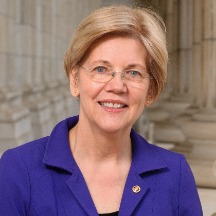The most enduring insult from my recent split with Wells Fargo Bank was their sending me a survey to evaluate their service after they charged me $1,318.41 for not adequately paying my $2,755 balance on time.
This had been a deeply frustrating experience, as I had spent about 96 hours, had three contacts with their escalating complaint offices, and sent formal complaints to the District of Columbia Office of the Attorney General and The United States Consumer Financial Protection Bureau, all to resolve a situation that could have been avoided with proper communication.
After having the payments for two loans automatically withdrawn from the same account for three years and one year, respectively, the dispute centered around my giving a human the wrong account number to pay them off on the day before the loans were due in February 2024. The account did not have enough money to cover the final payment, and I discovered the mistake when I saw online that I was getting extra charges from my credit union on the magazine’s account.
It is dismaying to think that the architects of the loan program may have factored in the potential profits Wells Fargo could gain from errors like mine, which are inevitable.
So, I left a message with the credit union the night I discovered the problem, initially thinking there must have been a mix-up. Wells Fargo never called me, nor did their accounting software flag that I changed payment accounts. Wells Fargo also never sent me an email about the bounced drafts.
Wayne A. Young vs. Wells Fargo
Publisher's Point



The root of the problem is that I initiated the first loan during the pandemic when business was slow, and Wells Fargo offered a three-year no-interest payment plan. The second was initiated about two years later, without interest for the first year and with a final lump sum due in February 2024, coincidentally at the same time as the first loan.
Upon reflection, it is disheartening and alarming that a borrower is not permitted to automatically make the final payment from the same account. Furthermore, it is not in the consumer's best interest that their accounting program fails to alert when a customer changes payment accounts or ceases to attempt to draw from an underfunded account, leading to bank fees for the consumer after the first bounce.
It is dismaying to think that the architects of the loan program may have factored in the potential profits Wells Fargo could gain from errors like mine, which are inevitable. This situation raises significant concerns about consumer protection and the openness of banking practices.
A simple AI or even human, God forbid, phone call from the bank to me on the following day would have solved the problem before it started. I am sure the architects of such loan programs know that such mistakes occur, and they can build in triggers to protect consumers and their profits.
The credit union, which had charged me two overdraft fees, took a more humane approach. Remember, I called them the night I found the problem and left a message on their recorder.
I woke up the next day to their phone call. The teller instructed me on how to avoid another charge if Wells Fargo Bank tried to withdraw from the account again. She then continued, "Mr. Young, we understand. We already reversed the charges."
Upon reflection, it is disheartening and alarming that a borrower is not permitted to automatically make the final payment from the same account. Furthermore, it is not in the consumer's best interest that their accounting program fails to alert when a customer changes payment accounts or ceases to attempt to draw from an underfunded account, leading to bank fees for the consumer after the first bounce.
It is dismaying to think that the architects of the loan program may have factored in the potential profits Wells Fargo could gain from errors like mine, which are inevitable. This situation raises significant concerns about consumer protection and the openness of banking practices.
A simple AI or even human, God forbid, phone call from the bank to me on the following day would have solved the problem before it started. I am sure the architects of such loan programs know that such mistakes occur, and they can build in triggers to protect consumers and their profits.
The credit union, which had charged me two overdraft fees, took a more humane approach. Remember, I called them the night I found the problem and left a message on their recorder.
I woke up the next day to their phone call. The teller instructed me on how to avoid another charge if Wells Fargo Bank tried to withdraw from the account again. She then continued, "Mr. Young, we understand. We already reversed the charges."
Advertisers | Contact Us | Events | Links | Media Kit | Our Company | Payments Pier
Press Room | Print Cover Stories Archives | Electronic Issues and Talk Radio Archives | Writer's Guidelines






